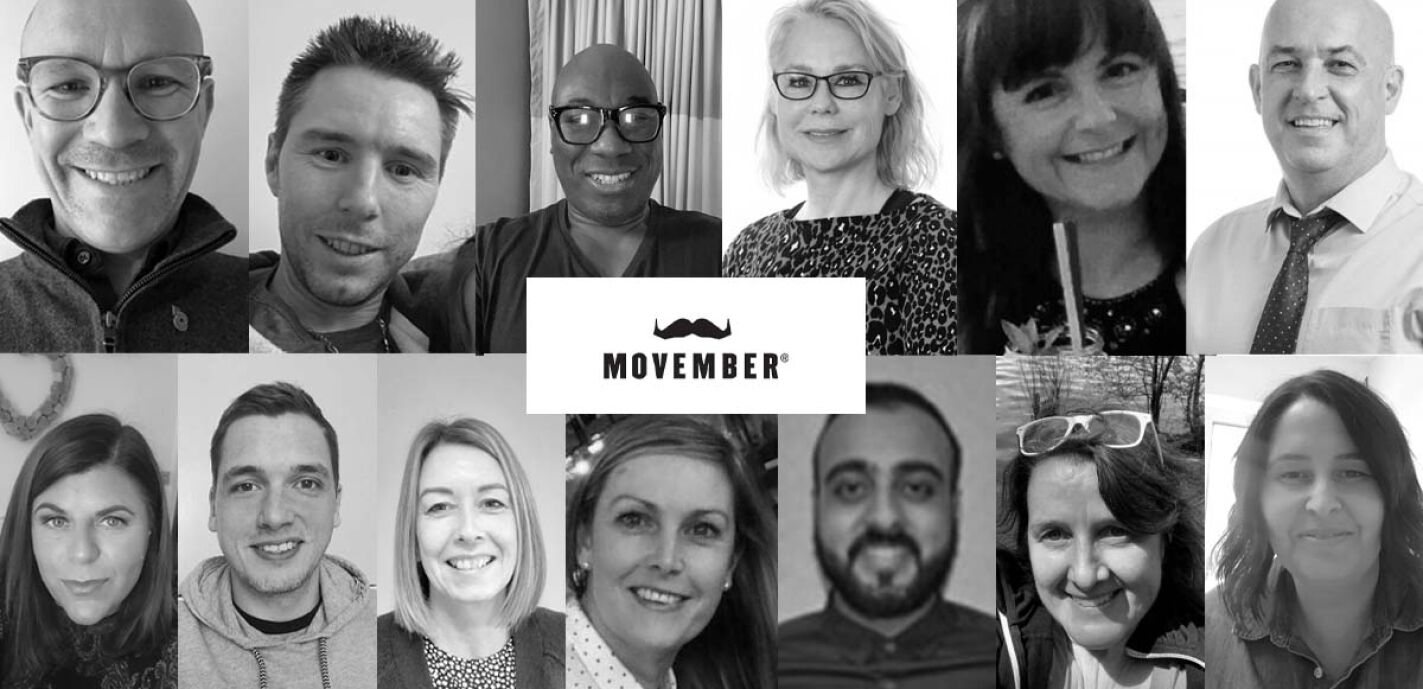


5th November, 2021
We are taking part in Movember this year! At a recent carer forum our CEO, Peter was asked if we could do more to raise awareness of men’s mental health and wellbeing. Well, we can!
Men can often feel reluctant to find support when they need it, so we’re going to help to make a difference by raising awareness and funds for Movember.
Movember is a men’s health charity that takes the lead in focusing on suicide prevention and mental health, testicular cancer and prostate cancer.
Our team of Mo Bros and Mo Sisters are all ready to raise awareness and funds for Movember. Some are growing moustaches; some have chosen to run/walk 60km over the month of November and we even have someone who will be completing 60 squats a day! 60 is a particularly significant figure for suicide prevention, as we lose 60 men to suicide worldwide every hour of every day.
You can donate to the team here.
Movember aims to reduce the number of men lost to suicide by 25% by 2030 by raising awareness and funding projects worldwide. You can find the projects that they fund in the UK here.
Is there anything we can do to help the men in our lives? Here is some useful information and links to support the prevention of suicide.
Research by Movember shows that stronger social connections can help to reduce the risk of suicide for men. That means we can do more to help more men to talk about things that really matter. In-depth conversations don’t always come easy, but here is a great tool from Movember in starting meaningful conversations and keeping them going.
It can be really hard to spot someone who is struggling. For example, do you automatically reply with “I’m fine” when asked how you are? Many of us do. Here is some help from Movember to help spot a man who maybe hasn’t quite been feeling themselves lately.
Someone who is feeling suicidal might:
If you think that someone's life is in immediate danger, call 999. You can find links and information about support organisations for people in crisis here.
You may be able to help someone more than you know by opening a meaningful conversation and offering a listening ear.
Movember offers four steps in helping someone who is struggling, to start talking (ALEC).
“You haven’t seemed yourself lately. Is everything okay?”
Don’t be afraid to ask again – it’s very easy to give an automatic “I’m fine” response to start with.
Helping someone isn't always about finding solutions for them. Actively listening can be a lifeline for someone who is struggling. Asking more questions rather than sharing your own experiences can really help someone to open up.
“That sounds really tough. How long have you been feeling like that?”
Take a look at the SHUSH active listening technique from the Samaritans.
Encourage him to think about things that might improve his wellbeing in general. Is he sleeping, eating properly, exercising? Is there someone else he trusts to talk to as well as you?
If he’s been feeling low for more than a couple of weeks, encourage him to speak with his doctor.
Show him that you’re there for him by arranging another meet up or a call where you can get a feel for if he’s feeling better.
Here are five steps we can all take to help improve our mental health and wellbeing.
Remember that often, taking that first step to action is the hardest.
If you’ve got any questions or would like to find out more about fostering with Capstone, fill out the form below.
An experienced fostering advisor from your local area will then be in touch.
By signing up, you will receive our latest fostering stories every two months.

Start the conversation today. Our team of friendly advisors are on hand to answer any foster care questions you may have. We can offer you honest and practical advice that can help you decide if becoming a foster carer is the right path for you.


